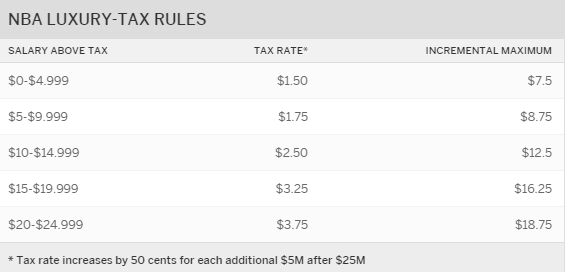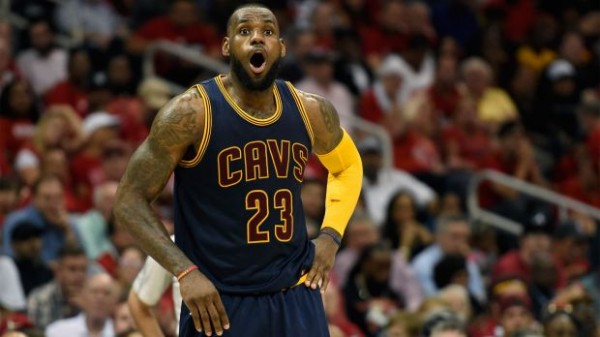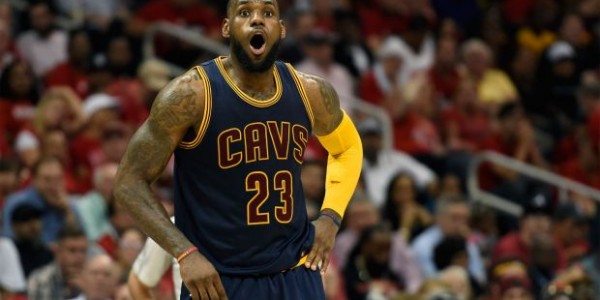After re-signing LeBron James, Kevin Love, Iman Shumpert and likely bringing back Tristan Thompson while also negotiating things with J.R. Smith and Matthew Dellavedova, the Cleveland Cavaliers are going to pay a lot of money through luxury tax, maybe even breaking the record.
Paying a lot of money through luxury tax doesn’t promise success. The six biggest offenders of all-time (four of them Knicks teams courtesy of Isiah Thomas) never got past the conference semifinals. The Nets paid $90.6 million in luxury tax for the 2013-2014 season, making the conference semifinals. The Cavs are on their way to go past that number.

The Cavaliers, without Thompson, Smith and Dellavedova re-signed, and presumably still with Brendan Haywood’s contract (we’ll get to him in a minute), are already above the $84.7 luxury tax threshold. Haywood is owed $10.5 million next season, but can be waived before August 1 and not cost the team any money, but the Cavaliers are trying to get the trade exception, which means trading Haywood to a team with enough cap space and get back maybe a second round pick, keeping it an insurance next season.
Assuming the Cavaliers manage to re-sign Thompson on a five-year, $80 million deal (he’s looking for over $90 million), J.R. Smith to $6 million a season and Dellavedova on a $5 million deal and somehow trade Haywood for contracts worth that $10.5 million, the team’s payroll grows to $124 million. That means just below $40 million over the luxury tax line, and that means paying $131 million in tax and $255 million overall in player salaries.

Cutting Haywood or getting rid of him (which will happen) by a trade would save over $51 million in taxes and almost $62 million total due to the increasing nature of the tax, resulting in a total tax of $80 million and a total expenditure around $193 million.
Another amazing numbers is what a minimum-salary player would cost the Cavaliers. The around $1 million (Depending on the veteran’s experience) salary gets a $3.75 million tax addition, which means nearly $5 million for a minimum-salary player, which the Cavaliers were hoping to add, although with the wage bill swelling so, there might not be room for anyone else.
